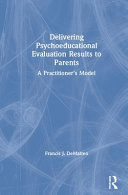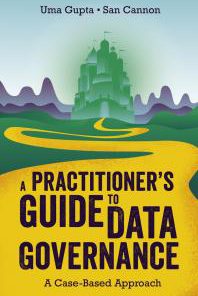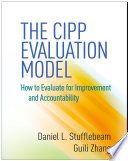Delivering Psychoeducational Evaluation Results to Parents A Practitioner Model 1st Edition by Francis Dematteo ISBN 9780429665042 0429665040
$50.00 Original price was: $50.00.$25.00Current price is: $25.00.
Delivering Psychoeducational Evaluation Results to Parents A Practitioner Model 1st Edition by Francis Dematteo – Ebook PDF Instant Download/Delivery: 9780429665042 ,0429665040
Full download Delivering Psychoeducational Evaluation Results to Parents A Practitioner Model 1st Edition after payment
Product details:
ISBN 10: 0429665040
ISBN 13: 9780429665042
Author: Francis Dematteo
Delivering Psychoeducational Evaluation Results to Parents A Practitioner Model 1st Edition Table of contents:
1 Introduction
Basic Premises to the Feedback Model
A Guiding Premise to Delivering Feedback
Verbal Feedback: A Supplement
Published Norm-Referenced Standardized Tests
Standard Scores by Age
Summary
References
2 The Feedback Model’s Necessity
The School Psychologist’s Role
Professional Ethics and Federal Regulations
NASP’s Ethical Principles
APA’s Ethical Principles of Psychologists and Code of Conduct
AERA Standards for Educational and Psychological Testing
Individuals with Disabilities Education Act: Section 300
Providing Psycho-Educational Evaluation Results to Parents: Literature Review
Summary
References
3 Human Learning
The Information Processing Model
Sensory Register
Short-Term Working Memory
Long-Term Memory
Transferring Information within the IPM
The IPM and Feedback Processes
Summary
References
4 Parents and Special Education Meetings
History
Negative Past Experiences with Service Providers
Parents Receiving Misinformation—Rumors
Parents Reflecting on Negative Memories of Themselves as Students
Communication
Characteristics of Parent-Professional Communication
How Parents Prefer Professionals to Communicate
Physical Environment of the Meeting
Characteristics of the Meeting
Organization of Content
Time
Number of People Present
Parent Perceptions of Self
Parent Perceptions of the Professional
Addressing Parents’ Degree of Need: Consumerism and Anomie
Parents as Consumers: A Growing Trend in Special Education
Alleviating Parents’ Degree of Need via the Feedback Model
Structuring the Feedback Meeting
Guiding Communication
Improving Parents’ Perceptions of Self and the Practitioner
Summary
References
5 Prerequisite Practitioner Skills to Utilizing the Feedback Model
Content Related Skills
Principles of the Normal Curve
Characteristics of Standardized Scores and Percentile Ranks
Confidence Intervals
Descriptive Categories of Standardized Scores
Common Constructs Measured During the Evaluation
Process Related Skills
Listening
Paraphrasing
Reframing
Summarizing
Language Etiquette
Summary
References
6 Creating a Permanent Product with the Parent: Utilizing the Feedback Model
Step 1: Host
Rationale
Step 2: Point Out One Unique Attribute of the Child
Rationale
Step 3: Ask the Parent, “What Did Your Child Think of the Evaluation Process?”
Rationale
Step 4: State the Purpose of the Feedback Meeting
Rationale
Step 5: Provide a Broad Overview of the Evaluation and Set an Agenda
Rationale
Step 6: Provide an Overview of Standardized Assessment
Rationale
Step 7: Draw the Graph
Rationale
Step 8: Explain the Caveats to Ranges and Interpretations
Rationale
Step 9: Describe Structure of Cognitive Instrument
Rationale
Step 10: Plot the Overall Cognitive Score and Factor Scores in Appropriate Ranges
Rationale
Step 11: Describe the Structure of Achievement Instrument
Rationale
Step 12: Plot the Overall Achievement Score and Factor Scores in Appropriate Ranges
Rationale
Step 13: Plot the Curriculum Based-Measure (CBM) Results (if Applicable)
Rationale
Step 14: Plot Visual Motor Results (if Applicable)
Rationale
Step 15: Review of Social-Emotional and Behavioral Results
Rationale
Step 16: Conclusions and Recommendations
Rationale
Summary
References
7 Utilizing the Feedback Model with Diverse Populations
Principles of Professional Practice
American Psychological Association
National Association of School Psychologists
Relational Humility
Cultural Humility and Microaggressions
Implications for Practitioners: Developing Cultural Humility and Avoiding Microaggressions
Summary
References
8 Application
Case 1: Steven
Background Information
Current Evaluation Results
Meeting Characteristics
Student Meeting Prior to the Feedback Session
Feedback Session with the IEP Team
Student and Team’s Reaction to Feedback
Commentary
Case 2: Teresa
Background Information
Current Evaluation Results
Meeting Characteristics
Initial Interactions Prior to the Feedback Session
Feedback Session with the IEP Team
Parent and Team’s Reaction to Feedback
Commentary
Summary
9 Conclusion
Index
People also search for Delivering Psychoeducational Evaluation Results to Parents A Practitioner Model 1st Edition:
psycho-educational evaluations
psychoeducational evaluation example
what is the purpose of a psychoeducational evaluation
psychoeducational evaluations
psycho-educational evaluation
Tags:
Francis Dematteo,Psychoeducational Evaluation Results,Parents
You may also like…
Relationships & Lifestyle - Families & Parents
Education Studies & Teaching - Education Management & Organisation
Politics & Philosophy - Social Sciences
Religion & Spirituality - Buddhism
Uncategorized
Military to Civilian Employment A Career Practitioner s Guide 1st Edition Yvonne Rodney
Psychology - Psychotherapy












